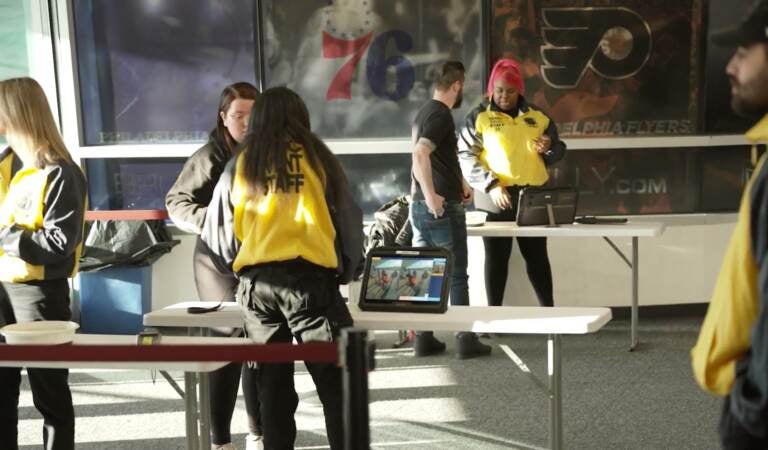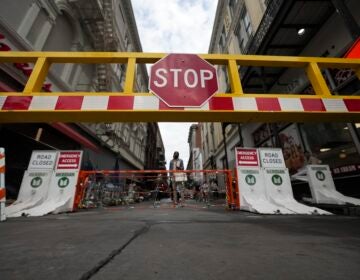Wells Fargo Center partners with AI tech company to speed up security check-in process
The upgrades are part of the arena’s more than $350 million transformation project.

The system utilizes sensors and AI technology which ''instantly distinguishes between threats and the everyday items.'' (Screenshot/Courtesy of Comcast Spectacor)
Philadelphia’s Wells Fargo Center is partnering with Evolv to provide a security system that allows people to breeze through check points without having to take everything out of their pockets.
The system uses “powerful sensor technology” with artificial intelligence to scan through people’s pockets and bags that “instantly distinguishes between threats and the everyday items,” according to a press release.
“Thanks to this new, cutting-edge technology, fans coming to the New Wells Fargo Center will have a much quicker, more seamless security screening process,” said Valerie Camillo, CEO and president of Spectacor Sports and Entertainment.
“Most fans will be able to simply walk through the Evolv Express screening area without emptying their pockets or opening their bags, making the security process safer, easier, and faster than ever before,” Camillo said.
Wells Fargo Center Senior Vice President and General Manager Phil Laws said it will save attendees a lot of time when entering the arena.
“We spent 20 years making it hard to get into the arena,” Laws said in a prerecorded video statement. “This is the first time in a long time when we’ve added something that just makes it completely pass through, frictionless screening, walk right into the venue.”
The upgrades are part of the arena’s more than $350 million transformation project, which is expected to wrap up this summer with additions including new locker rooms and upgrades to the building’s exterior.
The system has been used at Philadelphia Flyers games since mid-February. Bags larger than 4.5” by 6.5”, and smaller than 14” by 14” by 6” are still subject to X-ray screenings. The arena’s “hopeful” bags will soon no longer need to be individually screened.
The Philadelphia Eagles and Phillies also use Evolv systems at their events.
Criticism has been levied at Evolv’s AI technology since it has been rolled out across venues. IPVM, a research firm, suggests they may fail to detect certain types of knives, as well as some bombs and components, according to the BBC.
WHYY is your source for fact-based, in-depth journalism and information. As a nonprofit organization, we rely on financial support from readers like you. Please give today.






